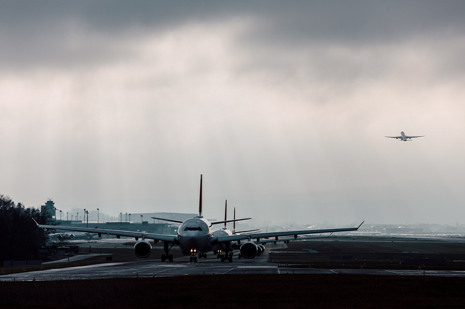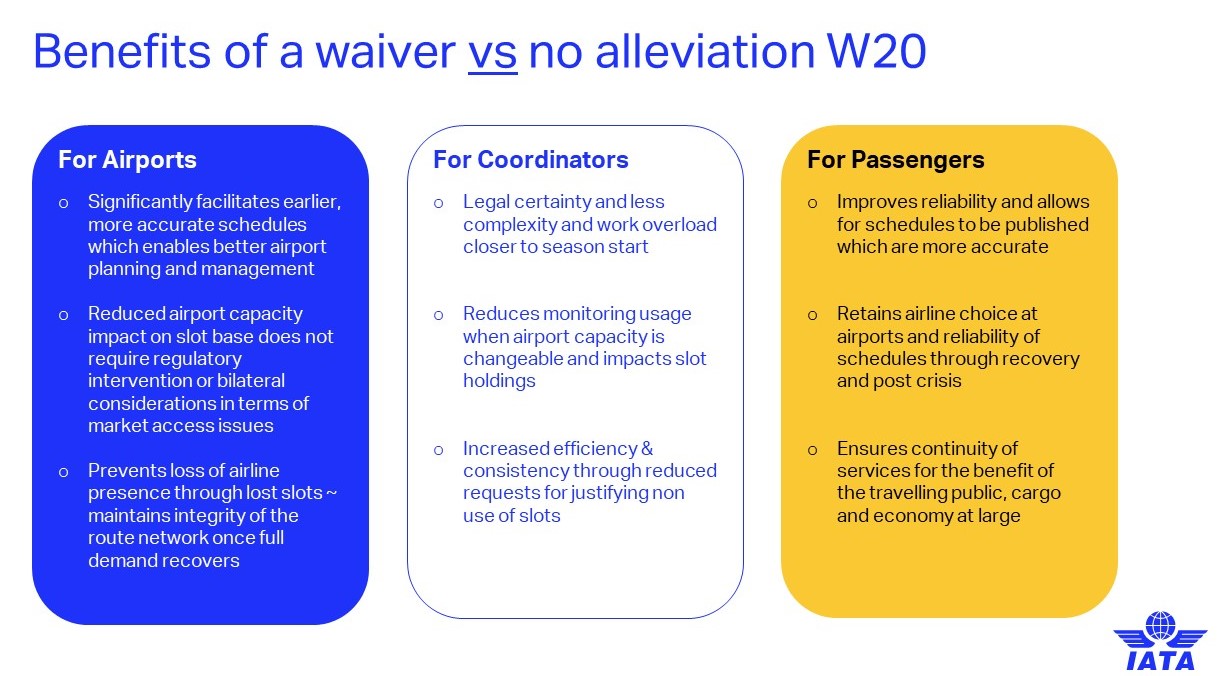
One of the least-known but most important of the impacts of Covid-19 on the aviation industry was the urgent need to suspend the rules governing the use of airport slots for the summer 2020 season. Now airlines are asking for this waiver to be extended to Winter 2020. So what are airport slots and why is it so important the slot use waiver is granted?
What are airport slots? At congested airports, the available capacity is divided up into landing and take-off time windows. These are allocated to airlines through a process overseen by an independent referee (known as Slot Coordinators). Airline schedules have been built over decades to provide connectivity and a network of flights at the most convenient time for passengers – and slots are the backbone of such operational discipline by giving certainty the airline can retain their schedule globally, building connections across their operation, and that of their partners/alliances. If slots are lost, so is the structure of the schedule and further global connectivity.
Airport slots are allocated in accordance with the Worldwide Airport Slot Guidelines (WASG), and in Europe are regulated by rules set down in the European Slot Regulation. The Regulation and WASG mandates that an airline must use 80% of its slots as allocated over the summer or winter season, or else it risks losing the slot and it being allocated to a different airline.
As the Covid-19 crisis expanded in March 2020, stories started to appear in the media of so-called “ghost flights” - examples of flights taking place with almost no passengers on board. This practice, at first sight, seemed like a completely irrational decision, both financially and environmentally. But in reality, it was a rational response to the need to preserve airport slots under the “use it or lose it” rule, which under normal circumstances works well to ensure optimal use of scarce capacity.
During previous sharp downturns in air traffic demand, regulators have suspended the “use it or lose it” rule, and with the total collapse in traffic due to Covid-19, it was obvious the summer 2020 season needed a similar waiver. IATA requested regulators worldwide to immediately suspend the “use it or lose it” rule and in Europe we were grateful the European Commission granted this. The “ghost flights” ceased.
Today, the crisis continues. Forward booking data is already telling us that demand for air travel this winter will be far below normal. With airlines fighting for survival, every bit of help is crucial. Airlines should not be required to operate 80% of slots when there is no ‘normality’ in the industry or in the way demand is behaving. To adjust and survive, airlines need flexibility, to be responsive and agile, and be able to make environmentally and financially sustainable plans (and schedules).
Therefore, an extension to the slots rule waiver to cover the upcoming Northern Winter 2020/21 season is essential. It’s a decision that must be approved before the end of July to enable airlines to plan a sustainable schedule and prevent more “ghost flights”. Moreover, providing the waiver now would give more certainty of the winter schedule for airports and for passengers sooner.

For Lara Maughan, Head of Airport Worldwide Slots at IATA, “Airlines are not asking for their schedule to be frozen in time forever, and they recognize this is an exceptional request, but this winter is a continuation of the summer crisis, and airlines need this help to survive through to the summer 2021. Airlines are willing to work with airports on implementing the waiver, but the most important thing now is to have a waiver in place. Timing is everything. Airlines and it seems many airports agree: the sooner the waiver is granted, the earlier airlines will be able to match their schedule to demand, as well as return the slots they are certain not to use.”
It’s now over to regulators like the European Commission to extend the help they have already offered and allow airlines a fighting chance to recover next year when we hope demand starts returning to a fuller extent.
Further information: